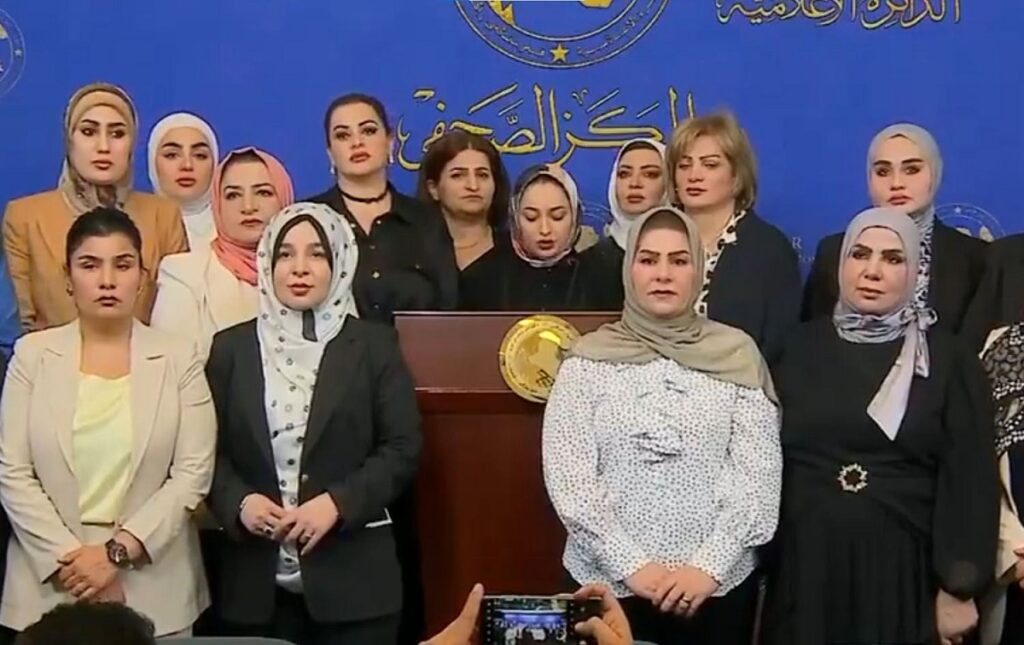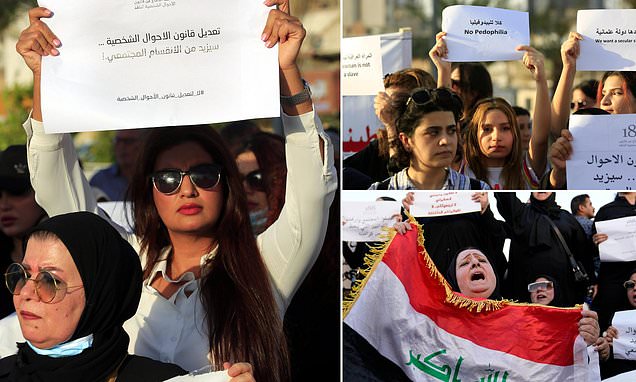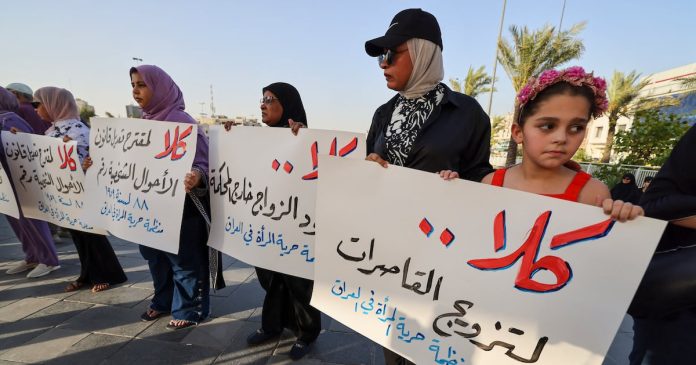Facebook Twitter (X) Instagram Somali Magazine – People’s Magazine
Baghdad, August 10, 2024 — Iraq’s parliament has passed a controversial new law lowering the legal age of marriage from 15 to nine years old, a move that has sparked widespread criticism both domestically and internationally. The decision, passed by a majority vote, is seen as a significant shift in the country’s legal framework and has raised serious concerns about the rights and welfare of young girls.
Iraq Details of the New Legislation
The new legislation amends Iraq’s Personal Status Law, which previously set the legal marriage age at 15 with parental consent and at 18 without consent. Under the revised law, girls as young as nine can now be legally married with the approval of their parents or guardians, effectively allowing child marriages to become more common in the country.
Proponents of the law argue that it reflects Iraq’s cultural and religious traditions and aligns with certain interpretations of Islamic law. However, the move has been met with strong opposition from human rights organizations, women’s rights groups, and various segments of Iraqi society who fear that it will lead to increased child exploitation and abuse.
International and Domestic Reactions
The legislation has triggered an outcry from international organizations, including the United Nations and Human Rights Watch, which have condemned the law as a violation of fundamental human rights. Critics argue that the new legal framework undermines efforts to protect children and promote gender equality in Iraq, a country that has been struggling with issues related to women’s rights and social development.

In a statement, UNICEF expressed deep concern over the law, highlighting the potential harm it could cause to young girls. “Child marriage is a serious violation of children’s rights. It threatens their education, health, and well-being,” the organization stated. “We call on the Iraqi government to reconsider this law and to uphold the rights of children as enshrined in international agreements.”
Domestically, the law has also faced opposition from various civil society groups and political figures who argue that it represents a regression in the protection of women and children in Iraq. Protests have been organized in several cities, with demonstrators calling for the law to be repealed and for the government to prioritize the rights and welfare of children.
Implications for Iraqi Society
The lowering of the marriage age is expected to have significant social and legal implications in Iraq. Critics warn that it could exacerbate the issue of child marriage, which has long been a concern in some parts of the country, particularly in rural areas where traditional practices often take precedence over legal norms.
Women’s rights activists fear that the law could lead to an increase in forced marriages, with young girls being married off to older men, often for financial or social reasons. They argue that the law does not consider the physical and psychological impact of early marriage on girls, who are often unprepared for the responsibilities and challenges of marriage and motherhood at such a young age.

Iraq Government’s Position
The Iraqi government has defended the new law, arguing that it is rooted in cultural and religious values. Supporters of the legislation assert that it provides a legal framework for marriages that are already occurring informally, thereby offering protection to girls by bringing these unions under legal oversight.
However, this rationale has been challenged by opponents who believe that the law legitimizes and institutionalizes child marriage rather than addressing the underlying issues that lead to such practices.
Future Prospects
The passage of this law represents a significant development in Iraq’s legal landscape, and its long-term effects remain to be seen. As the international community continues to express concern, the Iraqi government may face mounting pressure to revisit or amend the legislation.
The situation in Iraq highlights ongoing global debates about the balance between cultural traditions and the protection of human rights, particularly in regions where child marriage remains a contentious and deeply rooted issue..

